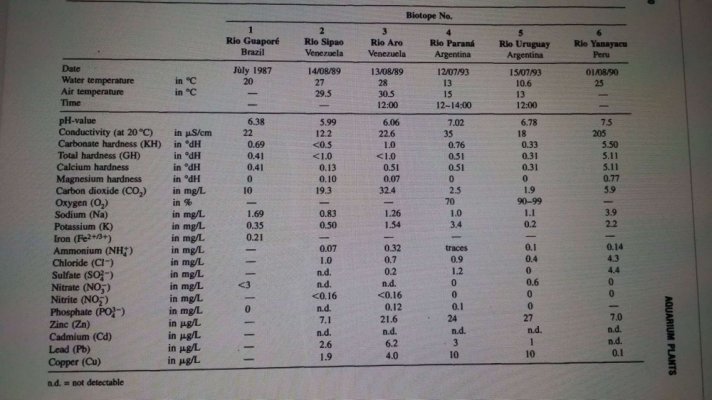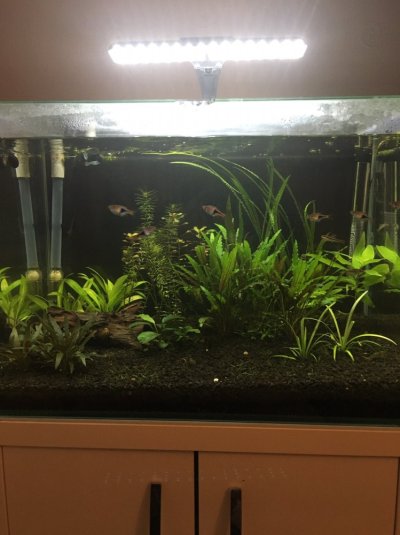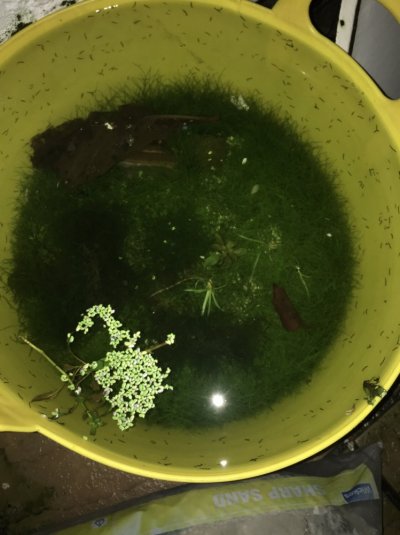BBradbury
Aquarium Advice Addict
- Joined
- May 24, 2011
- Messages
- 5,011
Hello AA..
Thought this thread might go best under "General Discussion", since the nitrate issue affects the majority of tank keepers. I was asked about a natural means of lowering nitrates in the fish tank water and suggest using the Chinese evergreen house plant. Attached is a photo of a small 20 gallon tank with a species of the plant immersed in the tank water. The root ball is rinsed of all the potting soil and they go under the water with the leaves above. An air pump is set up and tubing is positioned under the roots to supply oxygen to them. The plant grows naturally in the water as long as it gets oxygen. The fish provide nutrients and the roots take in all the nitrogen from the dissolving fish waste There's no trace of ammonia or nitrite and the nitrates are minimal in this tank. Nitrate will rise a little at night when the plant rests. As soon as the tank lights come on, the nitrate is removed in a few hours. The more plants you have, the cleaner the water.
B

https://imgur.com/CDdf8iH

Thought this thread might go best under "General Discussion", since the nitrate issue affects the majority of tank keepers. I was asked about a natural means of lowering nitrates in the fish tank water and suggest using the Chinese evergreen house plant. Attached is a photo of a small 20 gallon tank with a species of the plant immersed in the tank water. The root ball is rinsed of all the potting soil and they go under the water with the leaves above. An air pump is set up and tubing is positioned under the roots to supply oxygen to them. The plant grows naturally in the water as long as it gets oxygen. The fish provide nutrients and the roots take in all the nitrogen from the dissolving fish waste There's no trace of ammonia or nitrite and the nitrates are minimal in this tank. Nitrate will rise a little at night when the plant rests. As soon as the tank lights come on, the nitrate is removed in a few hours. The more plants you have, the cleaner the water.
B

https://imgur.com/CDdf8iH

Last edited by a moderator:



